Breast Augmentation in Hua Hin
Search and Compare the Best Clinics and Doctors at the Lowest Prices for Breast Augmentation in Hua Hin
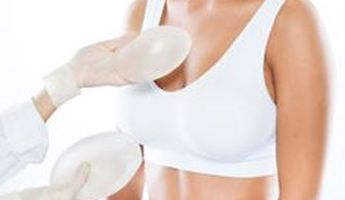
Find the best clinics for Breast Augmentation in Hua Hin
With Medijump you can browse 2 facilities offering Breast Augmentation procedures in Hua Hin. The cheapest price available is $1,098 in Nonthaburi
Breast Augmentation in Thailand
Price: $ 1,098
Breast Augmentation in Nonthaburi
Price: $ 1,098
Breast Augmentation in Chiang Mai
Price: $ 1,109
Hungary offers the best prices Worldwide
Price: $ 208
From 95 verified reviews
Shakira Liverman, 27 November 2020
5 stars only for this hospital🤩 Had surgery and spend a week here. No hospital stay in pleasant, but staying here truly felt like a 5-star hotel experience! Staff are caring and compassionate. The doctors are skilled and knowledgeable. They treated me with respect.
Sanpaulo Hospital, located in Bor Fai, Hua Hin, Thailand offers patients Breast Augmentation procedures among its total of 27 available procedures, across 5 different specialties. The cost of a Breast Augmentation procedure starts from ฿95,000, whilst the national average price is approximately ฿100,333. There is currently a lack of information available on the specialists practicing at the Hospital, and they are not accredited by any recognized accreditations institutes
Compare Before & After Photos of _procedure_photos.phpBreast Augmentation


Full-side view
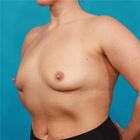

Half-side view


Front view
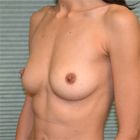

Half-side view
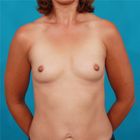

Front view
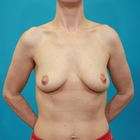

Front view
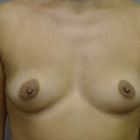
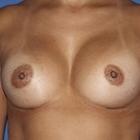
Front view
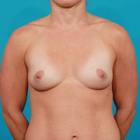

Front view
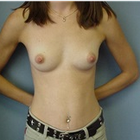
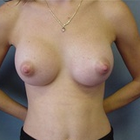
Front view
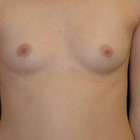
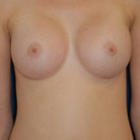
Front view
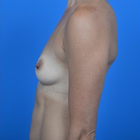
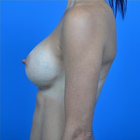
Full-side view
WHY US?
At Medijump, we're making medical easy. You can search, compare, discuss, and book your medical all in one place. We open the door to the best medical providers worldwide, saving you time and energy along the way, and it's all for FREE, no hidden fees, and no price markups guaranteed. So what are you waiting for?

Free

Best Price

Widest Selection

Risk-Free
What you need to know about Breast Augmentation in Hua Hin

Breast augmentation, also known as a Boob Job or Breast Enlargement, is a surgical procedure aimed at increasing breast size, enhancing shape, or improving symmetry. In Hua Hin, this procedure is carried out by board-certified plastic surgeons in accredited medical facilities, ensuring both safety and quality.
What is the cost of Breast Augmentation in Hua Hin?
Prices in Hua Hin are competitive, often offering savings without compromising on quality, especially when compared to costs in the US or Europe. However, factors such as surgeon’s fees, facility costs, and the type of implants affect the total cost.
What does a Breast Augmentation Procedure Involve?
The surgery involves placing breast implants under the breast tissue or chest muscles. Choices between saline or silicone implants can be made based on the desired feel and appearance. This is something your surgeon will discuss with you prior to even travelling.
How Long Should I Stay in Hua Hin for a Breast Augmentation Procedure?
The length of stay in Hua Hin for a Breast Augmentation is subject to various factors, such as your overall health, the specific nature of the procedure, and your individual recovery rate. Generally, Breast Augmentation surgery is an outpatient process, meaning you may be able to return home on the same day. However, a stay of up to two days might be necessary if your procedure is more intricate.
Although the hospital stay is relatively brief, it is advisable to remain in Hua Hin for at least one-week post-procedure. This timeframe allows for initial recovery and a follow-up appointment with the surgeon. Moreover, in the event of any complications, prompt medical assistance will be accessible. Thorough knowledge of the recovery process and its duration is crucial for proper preparation and managing stress during treatment.
What's the Recovery Time for Breast Augmentation Procedures in Hua Hin?
Post-surgery, a recovery period of one to two weeks is generally required, with follow-up visits to the surgeon. It's crucial to follow all post-op instructions for optimal healing.
Experiencing swelling and discomfort following the operation is normal, both of which should gradually alleviate with time. You will be required to wear a compression garment, take prescribed medications, and maintain a healthy lifestyle for an effective recovery.
What sort of Aftercare is Required for Breast Augmentation Procedures in Hua Hin?
Post-operative care is critical for the success of a Breast Augmentation. The initial recovery phase usually includes prescribed medications to alleviate pain and avert infection. Individuals can normally resume everyday activities within a few weeks, depending on their healing pace and bodily responses. However, it is advisable to refrain from vigorous activities for a minimum of six weeks post-procedure.
What's the Success Rate of Breast Augmentation Procedures in Hua Hin?
In Hua Hin, Breast Augmentation boasts a relatively high success rate, which contributes to its immense popularity among individuals seeking improvements in their physical appearance. Numerous patients have reported satisfaction and enhanced confidence after undergoing the procedure, making it a widely favoured cosmetic surgery.
Are there Alternatives to Breast Augmentation Procedures in Hua Hin?
In Hua Hin, there are several alternatives to the Breast Augmentation. If you're considering breast augmentation strictly for cosmetic reasons and prefer non-surgical options, various suitable methods are available. Alternatives include fat grafting, hormonal therapy, and natural remedies. Fat grafting, also known as fat transfer, involves removing fat from different body parts and injecting it into your breasts. This approach is regarded as safer because it employs the body's tissue, minimizing complications.
What Should You Expect Before and After the Procedure?
Prior to the procedure, your surgeon will discuss your expectations and the anticipated outcomes of your Breast Augmentation. The preoperative consultation comprises an in-depth conversation about your medical history, a physical examination, and an outline of the procedure and postoperative care. Open and candid communication with your healthcare provider is crucial at this stage to ensure the treatment matches your objectives.
Post-procedure, initial swelling and discomfort are normal and can be managed with prescribed medication. It's vital to adhere to your surgeon's post-operative guidelines, which include caring for surgical incisions, taking prescribed medications, and attending follow-up appointments. As swelling subsides and incision lines fade gradually, your enhanced breast profile will become apparent.
Keep in mind that the decision to pursue a Breast Augmentation is deeply personal and should not be made hastily. Allocate time to consider the advantages and drawbacks, and ensure you are well-informed.
What are the Risks and Complications of Breast Augmentation Procedures in Hua Hin?
As is the case with any surgical intervention, Breast Augmentation comes with its own set of risks and potential complications that need to be considered. These may include infections, bleeding, alterations in nipple or breast sensations, implant leakage or rupture, development of scar tissue, and unsatisfactory outcomes that could necessitate further surgeries.
Some individuals may also encounter complications tied to anesthesia, such as respiratory problems and reactions to medication. The psychological ramifications should not be overlooked, considering surgical procedures can impact mental well-being. An extensive conversation with your healthcare provider about these potential risks remains a key component in making an informed choice.
How to Prepare for Breast Augmentation in Hua Hin?
Thorough preparation plays a significant role in the success of your Breast Augmentation. Before the surgery, you must have detailed conversations with your surgeon about your medical background, allergies, current medications, and lifestyle habits such as smoking or alcohol consumption. You may need to cease certain medications and habits, including smoking, weeks before the procedure, as they can influence the healing process.
Practical preparations like organizing for someone to be with you on the day of the surgery, scheduling sufficient time off work for recovery, and establishing a comfortable space at home for recuperation can contribute to a smoother post-operative phase. Your surgeon's team will also advise you on pre-operative fasting and hygiene guidelines.
What are some Common Misconceptions about Breast Augmentation?
Despite its widespread popularity, numerous misconceptions surround the Breast Augmentation. One such misconception asserts that breast implants are permanent. In actuality, breast implants may require replacement after 10-15 years, with the specific timeframe depending on individual health and lifestyle factors. Another false assumption is that breast augmentation solely serves vanity purposes. In reality, many patients undergo this procedure following mastectomy or as part of gender-affirming surgery.
A further common myth suggests that breast augmentation hinders breastfeeding. While a few instances might affect breastfeeding, the majority of individuals with breast implants can successfully breastfeed.
Whilst the information presented here has been accurately sourced and verified by a medical professional for its accuracy, it is still advised to consult with your doctor before pursuing a medical treatment at one of the listed medical providers
No Time?
Tell us what you're looking for and we'll reachout to the top clinics all at once
Enquire Now

Popular Procedures in Hua Hin
Prices Start From $834

Prices Start From $500

Prices Start From $93

Prices Start From $85

Prices Start From $477

Prices Start From $931

Recommended Medical Centers in Hua Hin for Breast Augmentation

- Interpreter services
- Translation service
- Religious facilities
- Medical records transfer
- Medical travel insurance
- Health insurance coordination
- TV in the room
- Safe in the room
- Phone in the room
- Private rooms for patients available

- Interpreter services
- Translation service
- Religious facilities
- Medical records transfer
- Medical travel insurance
- Health insurance coordination
- TV in the room
- Safe in the room
- Phone in the room
- Private rooms for patients available

- Interpreter services
- Translation service
- Religious facilities
- Medical records transfer
- Medical travel insurance
- Health insurance coordination
- TV in the room
- Safe in the room
- Phone in the room
- Private rooms for patients available
Breast Augmentation in and around Hua Hin
About Hua Hin
Perched on the seaside and a mere 195 km from Bangkok, sits the resort town of Hua Hin. Once a modest and peaceful island, it has since transformed into a prominent tourist destination within Thailand, boasting superb infrastructure and a diverse range of accommodation options. These cater to the growing ex-pat community and the influx of tourists who make their way to this picturesque town each year.
Hua Hin is synonymous with exceptional healthcare services that draw in medical tourists from all over the globe. This influx can be attributed to the town's provision of top-tier medical treatments that uphold high international standards. But it is not only the medical offerings that attract these visitors, they also revel in the unique sights, shopping experiences, and the unmatched Thai hospitality available in Hua Hin. Consequently, this charming seaside town has secured its place as one of the most sought-after wellness destinations on a global scale.
The benefits of traveling to Hua Hin as a medical tourist are as follows.
- Affordability: The treatments and medical procedures performed here cost only a fraction of the price you would expect to pay in your home country.
- Highly reputed professionals: Well-trained Doctors, who have a good understanding of the English language, are ready to serve you.
- Latest technology: You will find the hospitals equipped with modern and up-to-date medical equipment & technology.
- Wide range of Procedures: Cosmetic surgery, anti-aging treatments, cardiac surgery, premium-health check-ups are some of the more popular treatments amongst the medical tourists visiting Hua Hin.
Bangkok Hospital Hua Hin, San Paulo Hospital, and Hua Hin Hospital are some of the well- known healthcare centers of this Beach resort town.
Popular areas in Hua Hin
- Khao Takiab: The vibrant suburb lies 7 km away from the town and the main attractions include Khao Mountains, the 20 m tall Buddhist Statue, and the beach. You can enjoy the variety and taste of the delicious seafood. Tourists can also indulge in a variety of activities such as kayaking, swimming, jet-skiing, banana boat ride, and parasailing. Several budget hotels and luxurious resorts are available in the neighborhood to accommodate visitors.
- Cha-Am Beach: The beach is stunning yet quiet. You can relax while reading a novel or under a parasol for a traditional Thai massage. You will find stretches of local food shops, budget hotels, and guesthouses and the replica of the famous Greek island, Santorini is the highlight of this region.
- Cicada Market: The famous Cicada Market houses an impressive array of shops that sell handicrafts, paintings, glass-blown figurines of animals, T-shirts with graphic designs, and more. You can even get your own caricature painted for 300 THB.
Ensure to include the Maruekhathaiyawan Palace, Black Mountain Water Park, Hua Hin Hills Vineyard, Plearn Wan Shopping Village, Hutsadin Elephant Foundation, Wat Bor Fai, and Ratchapak Park in your itinerary. These attractions will only help to make your trip more memorable and fun-filled.
Weather and Climate in Hua Hin
Hua Hin has a tropical climate and experiences three distinct seasons: Wet, Dry, and Hot.
- Dry season: November to February. The average temperature is around 26°C during the dry season. The nights get cooler and sunshine is in abundance during the day. Afternoons are quite windy with high tides. It seldom rains during this season.
- Hot season: March to June. The average temperature can rise to 29°C. Some days can be very hot with temperatures as high as 35°C or more. Even during the night, the weather is dry and hot. However, towards the end of the season, you can expect moderate rains.
- Wet season: July to October. The average temperature remains around 28°C. Evenings are generally cool and pleasant. The afternoons receive moderate to heavy downpours. October is the wettest month at Hua Hin. There were incidences of flooding in downtown a few years back. Thankfully, the runoff is too quick to cause any potential damage.
November to March is the best time to visit Hua Hin.
Getting around in Hua Hin
Hua Hin International Airport is 15 minutes away from Hua Hin city center. Recently, the Thai Government proposed plans costing 3.5 billion Baht to reform and upgrade the airport to handle more passengers. Right now, the airport handles charted flights, besides Air Asia's Hua Hin-Kuala Lumpur domestic flights.
Within the City, you can use the daily ferry service to commute to cities like Pattaya, Ko Samui, and Ko Tao. As Bangkok lies close to Hua Hin, you can drive or take the train to the capital city. Hua Hin Railway station operates several ordinary, express, and special express trains to its neighboring towns and cities.
Moving around the compact town of Hua Hin is an easy task. The Songtaew generally serves as the preferred and most economical mode of transport, setting you back just 10 Baht for a distance of 1-3 km. Tuk-tuks, while more expensive, come into play for closer distances, exacting a minimum fare of 150 Baht for a distance within a kilometer. For those seeking a middle-ground price point, motorbike taxis offer a feasible solution, charging around 60 Baht for a distance spanning 1-3 km. Additionally, conventional taxis and rickshaws remain readily available, bringing further convenience to commuting within Hua Hin.
Beyond these options, the town also caters to those who prefer to employ self-navigated modes of transport. Car and bike rental services are plentiful in Hua Hin, providing visitors the freedom to roam around the city at their own pace. Whether you're driving down the scenic coastal route or cycling through the charming city streets, these personalized transport services add a layer of adventure and exploration to your Hua Hin travel experience.
Tourist visas in Hua Hin
Thailand has a relatively flexible visa policy, which makes it a popular tourist destination for people from all over the world. Citizens of many countries, including the G7 countries, can enter Thailand without a visa and stay for up to 30 days. Citizens of some other countries, such as India, China, Russia, Bulgaria, and Saudi Arabia, can obtain a visa on arrival, which allows them to stay for up to 15 days.
If you are planning to stay in Thailand for longer than 15 days, or if you are traveling to Thailand for a specific purpose, such as work or study, you may need to apply for a non-immigrant visa. There are different types of non-immigrant visas available, depending on your purpose of travel.
You can apply for a non-immigrant visa at a Thai embassy or consulate in your home country. You will need to provide a valid passport, a visa application form, and other supporting documents, such as a letter of invitation from a Thai company or university.
The processing time for non-immigrant visas can vary, so it is important to apply well in advance of your travel date.
Here are some additional tips for applying for a Thailand visa:
- Make sure that you have all of the required documents.
- Be prepared to answer questions about your trip and your purpose for visiting Thailand.
- Be aware that the visa requirements for Thailand can change at any time, so it is always best to check with the Thai embassy or consulate in your home country before you travel.
Additional Information
- Thai is the official language largely spoken throughout the country. The locals in Hua Hin speak good English. Yet, it is indispensable to learn a few common Thai words and phrases.
- Hua Hin’s currency is the Thai Baht (TBH). 1 US dollar is approximately around 34.5559 THB as of 2023.
- All of the big resorts and restaurants accept credit card payments. You can also find many ATM machines and money exchange booths across the city.
- Most of the population in Hua Hin practices Buddhism, followed by Islam and Christianity. When talking about members of Thailand's Royal Family you must be respectful as it is of the highest priority.
- The people of Hua Hin celebrate many festivals. New Year's Eve, Chinese New Year, Makha Bucha, Chakri Day, Songkran, Coronation Day are a few of them. The exact festival date varies every year on a Western Calendar.
Popular Searches
- Plastic Surgery in Thailand
- Dental Implants in Thailand
- Hair Transplant in Thailand
- Breast Augmentation Thailand
- Gastric Sleeve in Thailand
- Gender Reassignment Surgery in Thailand
- Laser Hair Removal in Bangkok
- Botox in Bangkok
- Dermatology in Bangkok
- Breast Augmentation in Bangkok
- Coolsculpting in Bangkok
- Veneers in Turkey
- Hair Transplant in Turkey
- Rhinoplasty in Turkey
- Stem Cell Therapy in Mexico
- Rhinoplasty in Mexico
- Liposuction in Mexico
- Coolsculpting in Tijuana
- Rhinoplasty in Korea
- Scar Removal in Korea
- Gastric Sleeve in Turkey
- Bone Marrow Transplant in India
- Invisalign in Malaysia
- Plastic Surgery in the Dominican Republic
- Tummy Tuck in the Dominican Republic
- Plastic and Cosmetic Surgery in Poland
- Rhinoplasty in Poland
- Hair Implant in Poland
- Dental Implants in Poland
- IVF in Turkey

